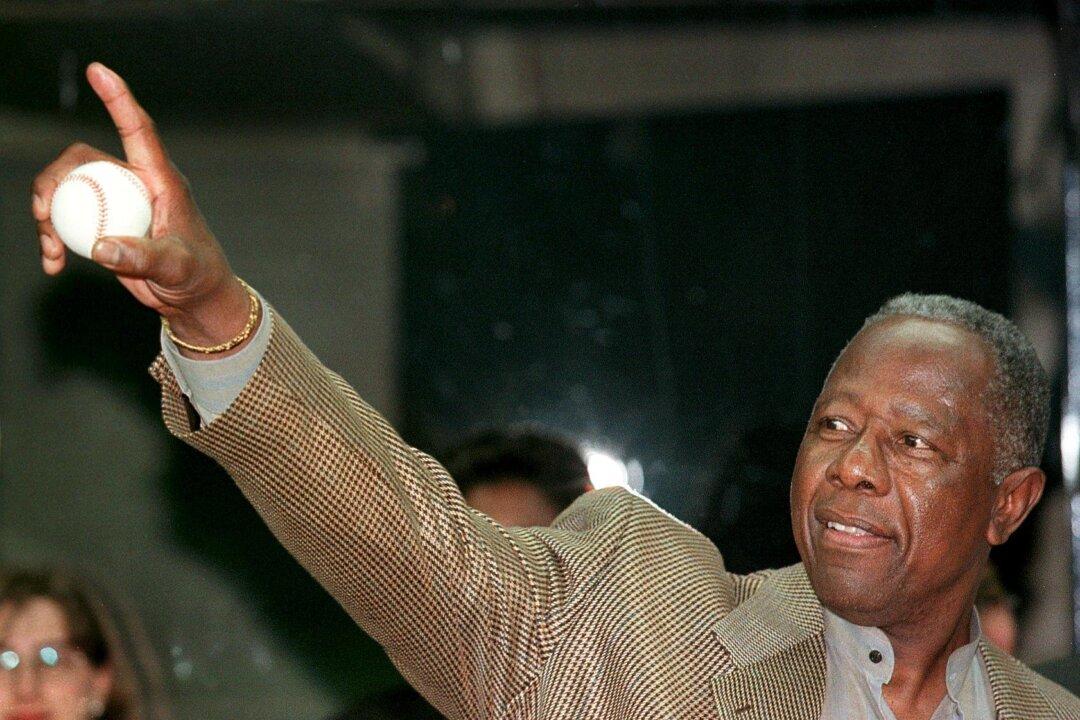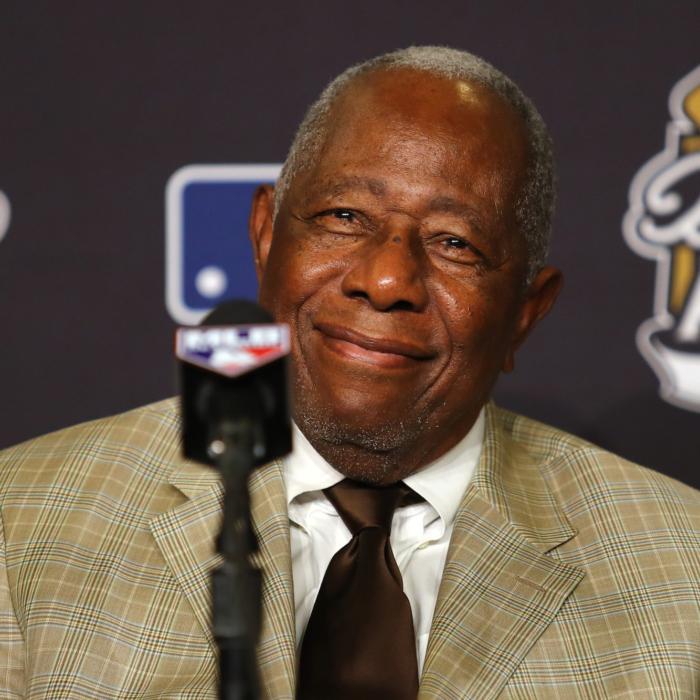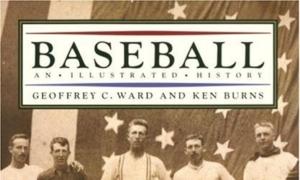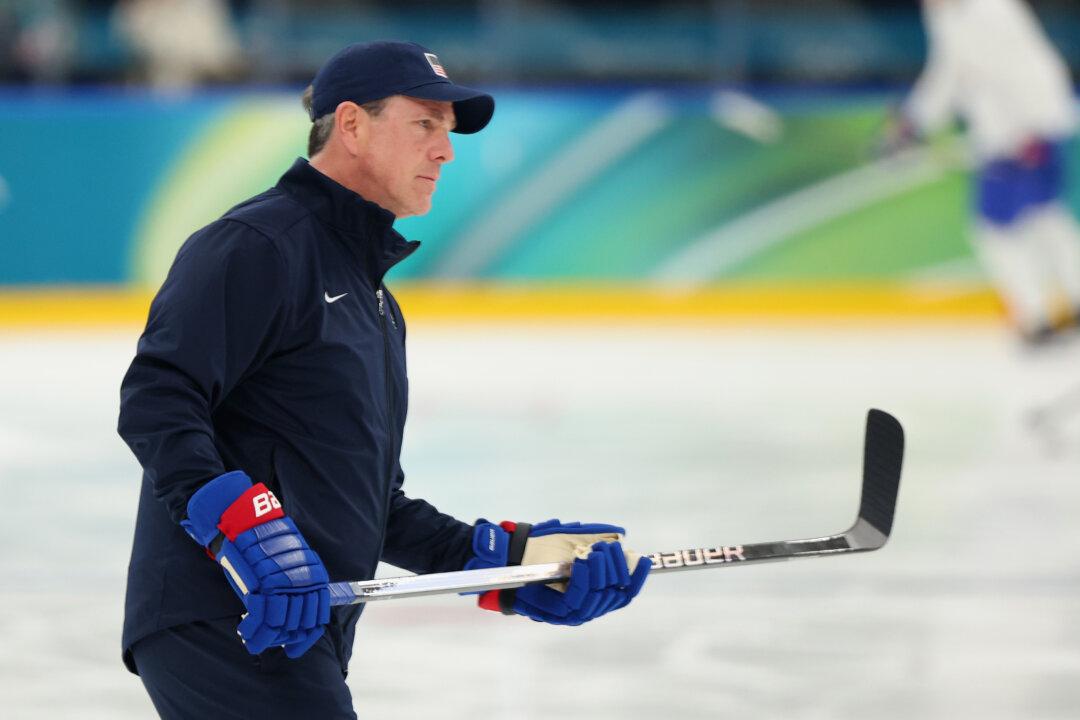When Henry Aaron slugged his historic 715th home run fifty years ago and surpassed the legendary Babe Ruth’s previously thought unbeatable accomplishment, a signal was sent that there would be more highlights to come for blacks in Major League Baseball (MLB).
Baseball fans of a generation ago could probably tell you in detail where they were when Aaron became the home run king, while connecting on Los Angeles Dodgers’ southpaw Al Downing’s pitch in the third inning, as the Atlanta Braves were hosting their divisional rivals.
Aaron’s former teammate and Braves’ skipper Eddie Mathews on April 8, 1974, inserted the main attraction that evening at Atlanta-Fulton County Stadium in left field. Over 53,000 people jammed into the then-9-year-old ballpark to witness history being made.
In his second at-bat, Aaron sent Mr. Downing’s finest toss over the outfield wall for the home run that was heard around the globe. A seismic shift in sports history was felt beyond clubhouses and league offices. Ruth, who retired in 1935 after smacking his last six round-trippers with the Boston Braves, saw his record bested by a black man.
Barely two decades had passed since Jackie Robinson broke MLB’s color barrier in 1947. Now, a slugging power bat from the right side, from Mobile, Alabama, took the lead. Barry Bonds pushed past Aaron in the record books when hitting his 756th home run in 2007.
While holding the home run crown, and since beyond Mr. Bonds taking the game’s top spot in that category, there have been many major awards earned and celebrated by blacks in the game. Progress is easily identifiable.
There have been black managers, more than two dozen American and National Leagues MVPs, team general managers, and players elected to the National Baseball Hall of Fame (including the only women enshrined in Cooperstown—Effa Manley—co-owner of the Negro League’s Newark Eagles).
Tony Clark, who logged a 15-season MLB career with a half dozen clubs, is today the MLB Players Association’s executive director. He remains the highest-ranking black within the union.
“[Aaron] was really committed to baseball,” said former MLB Commissioner Fay Vincent, who served as the game’s top official from 1989–92. “I knew him pretty well, first, when I was an executive with Coke.”
Mr. Vincent told The Epoch Times about his time working with Aaron on topics such as pensions and health benefits for those who played in the Negro Leagues, and the promotion of qualified candidates for third-base coaching assignments. Having general managers and field managers for well-qualified black men was also on their work menus.
Progress does not always move at expected speeds. When you are performing at the caliber as Aaron had throughout his celebrated career, most goals seem unattainable for most.
Progress remains steady on all fronts for causes that were high priorities to Aaron. Home runs aside, MLB has done much to add pride for the man respected on and off the field, known as “Hammerin’ Henry.”
However, when you are on the baseball field, playing at the highest level for 23 continuous seasons, following in such a shadow can be numbing for rookies and veterans alike. The former Milwaukee/Atlanta Braves and Milwaukee Brewer’s career stat sheet will marvel at the highest level of analytic calculations.
Count them—25 all-star game selections, a couple batting titles, all-time RBI leader (2,297) and total bases (6,856), a National League MVP selection (1957), a World Series championship (1957), and a 97.8 election percentage in 1982 to the National Baseball Hall of Fame—beating Henry Aaron is a tall order to approach for ballplayers of all races.
According to the Institute for Diversity and Ethics in Sport, players of color make up 40 percent of MLB rosters. In 2023, 6.2 percent of rosters were made up of black players. MLB is making efforts to increase black participation. On opening day 2023, of 954 players, there were 59 black players.
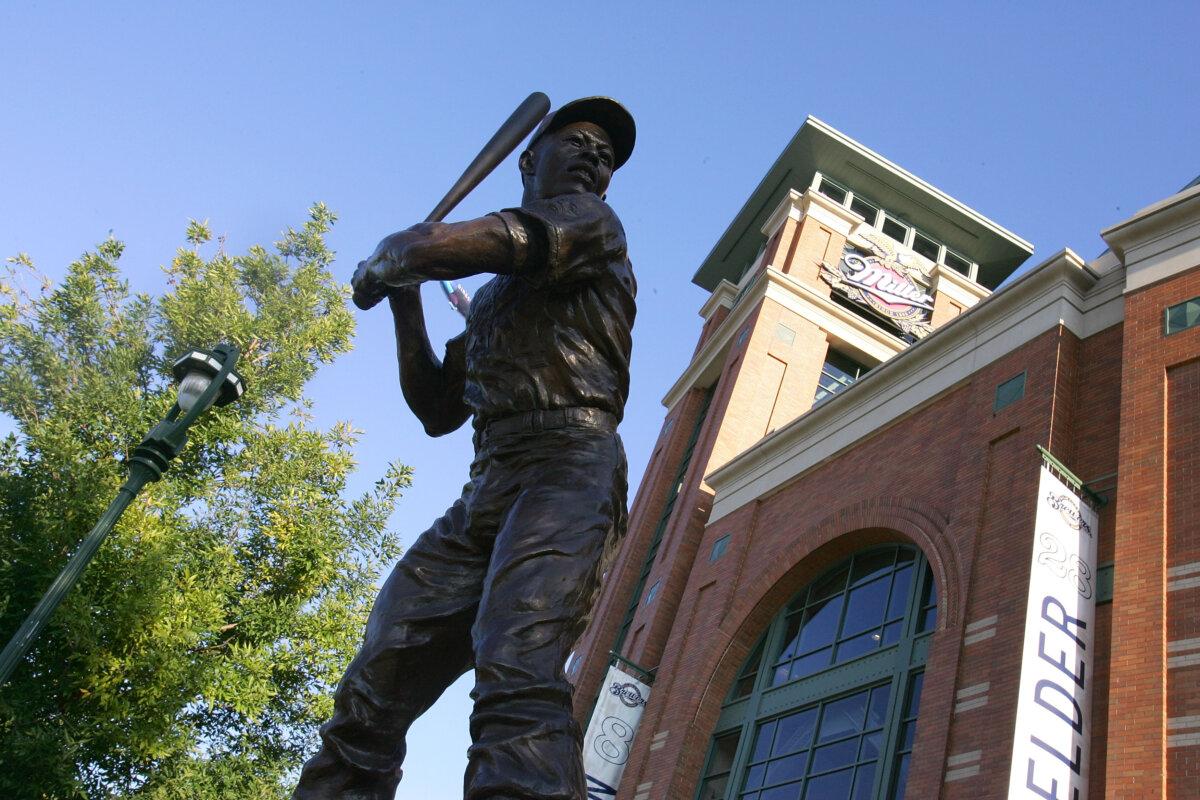
As Mr. Vincent recalls his conversations with Aaron, just as Robinson had campaigned for, the home run specialist did not believe that progress was coming as quickly as he had hoped.
“Life became more complicated. The percentage of Latin players in (MLB) has gone up, while the percentage of blacks has gone down. Henry cared about what his leadership meant.”
As Mr. Vincent points out, hitting a baseball thrown at 100 mph is a feat so much more difficult than scoring in basketball or scoring on a goalie in hockey. Leagues and clinics in inner cities, promoting and coaching black youths could be the tipping points for attracting the next generation of kids choosing baseball over football, or any other mainstream sport offered in schools.
In 2020, according to the Society of American Baseball Research, blacks participating in MLB peaked in 1981 at 18.7 percent.
Looking forward—beyond home runs, stolen bases, and the regular group of stats that create conversation among fans and ignite arguments among team loyalists—thanks to the class and dignity personified by Aaron, success remains constant on MLB’s horizon.
